News
Launched in 1999 and updated regularly, Statewatch News includes our own reporting and writing as well as articles, announcements, documents and analyses from elsewhere on civil liberties, EU policies and state practices. You can receive updates in your inbox by signing up to our mailing list, or use our RSS feed to get instant alerts.

Council of Europe: new recommendation on automated profiling adopted
Press release published by the Council of Europe on 3 November 2021, along with the updated recommendation.

EU: Special forces network seeks explosive drones for anti-terrorism operations
The EU-funded ATLAS network of special forces hopes to explore the possible use of drones fitted with explosives "as tactical support weapons and particularly to breach windows," according to its work programme for 2023, which has been obtained by Statewatch.
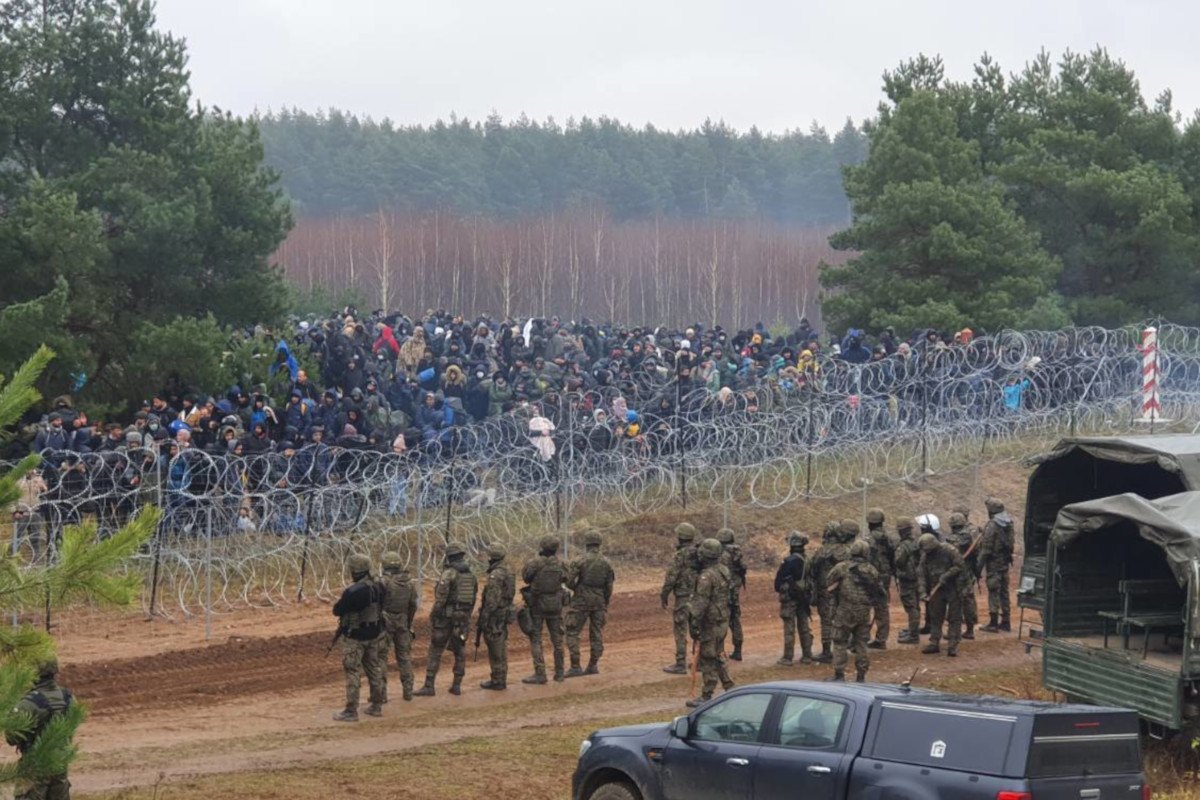
EU: The ‘weaponised migration’ discourse dehumanises asylum-seekers
Following the arrival of a substantial number of people in Poland and Lithuania after having crossed the border from Belarus, the EU and its member states have accused the regime of Alexander Lukashenko of "weaponising migration" - a discourse that legitimises the treatment of asylum-seekers "as other than human".
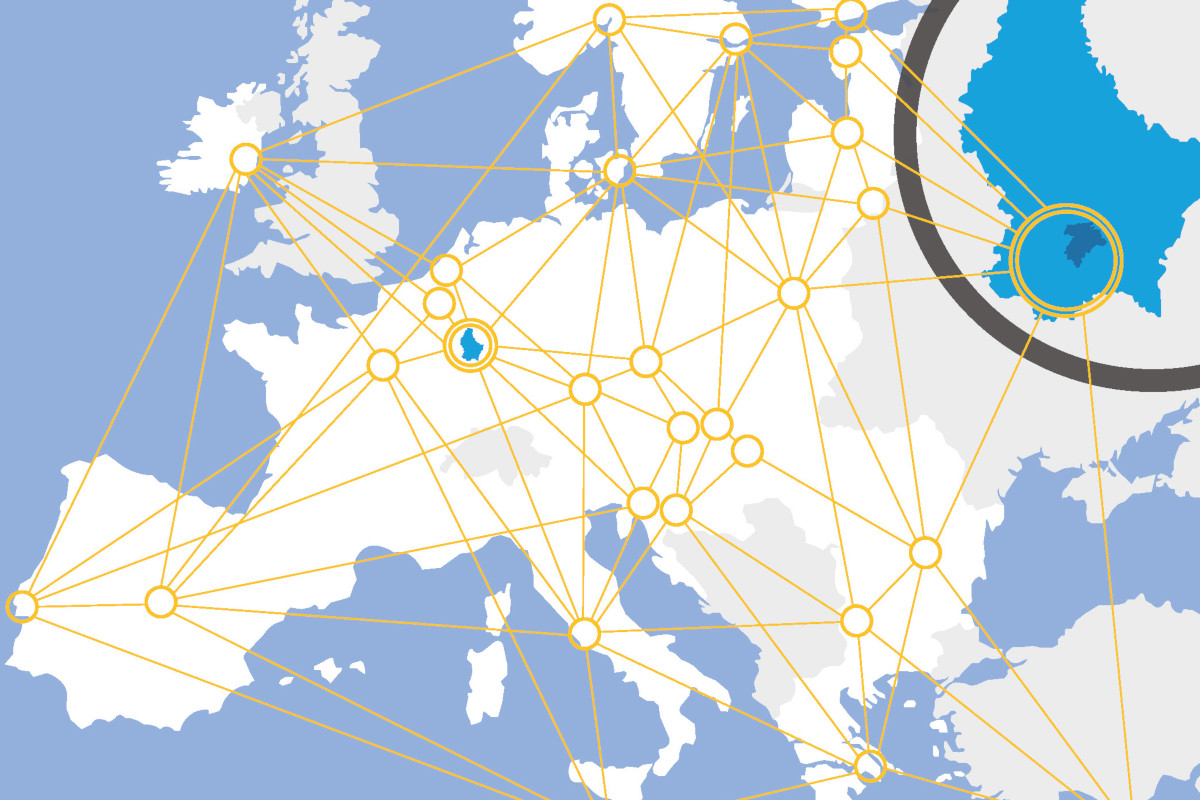
EU: New report: "Detection of vulnerabilities in the international protection procedure"
A report by the European Migration Network examines how and when EU member states detect "vulnerabilities" - for example relating to age, gender, family situation or medical conditions - of applicants for international protection.
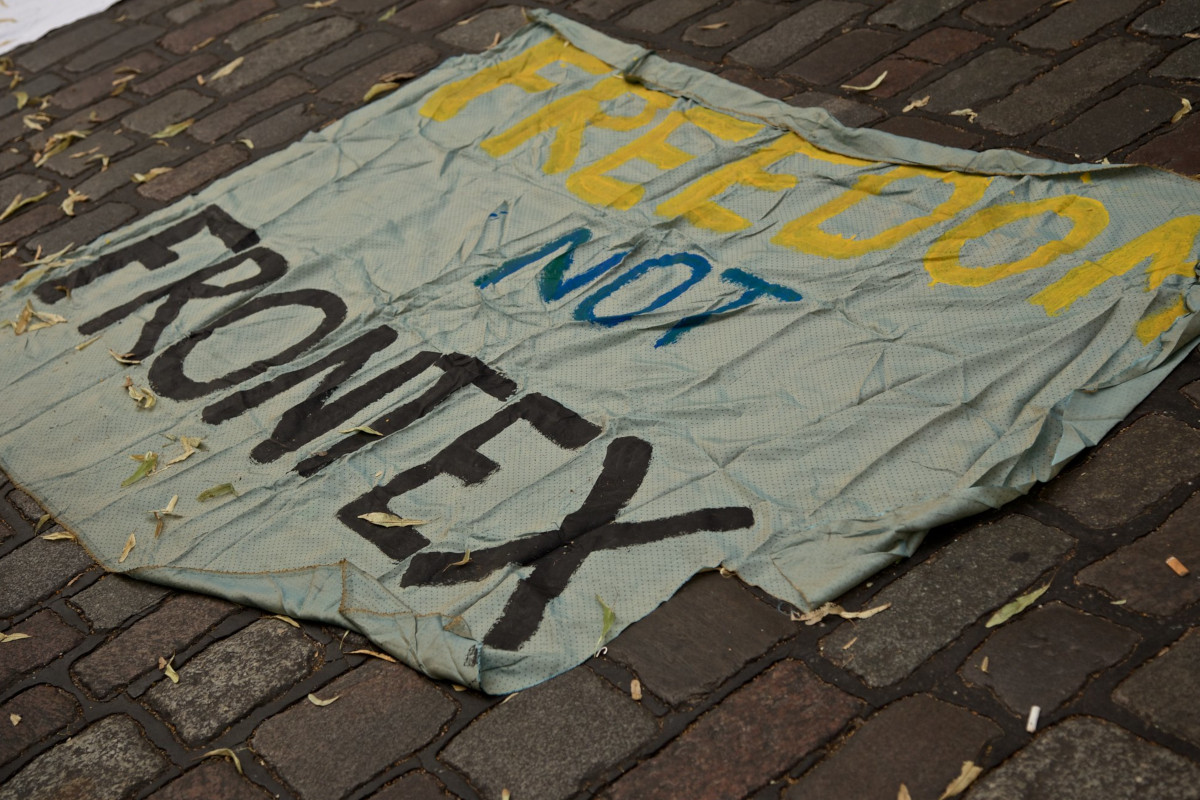
“Not alongside Frontex”: academics speak out against border collaboration
An academic at Turin Polytechnic University has denounced the institution's work for EU border agency Frontex. The campaign group LasciateCIEntrare has called on individuals and institutions "not to legitimate the violent, repressive, expelling and racialising of the European Union".
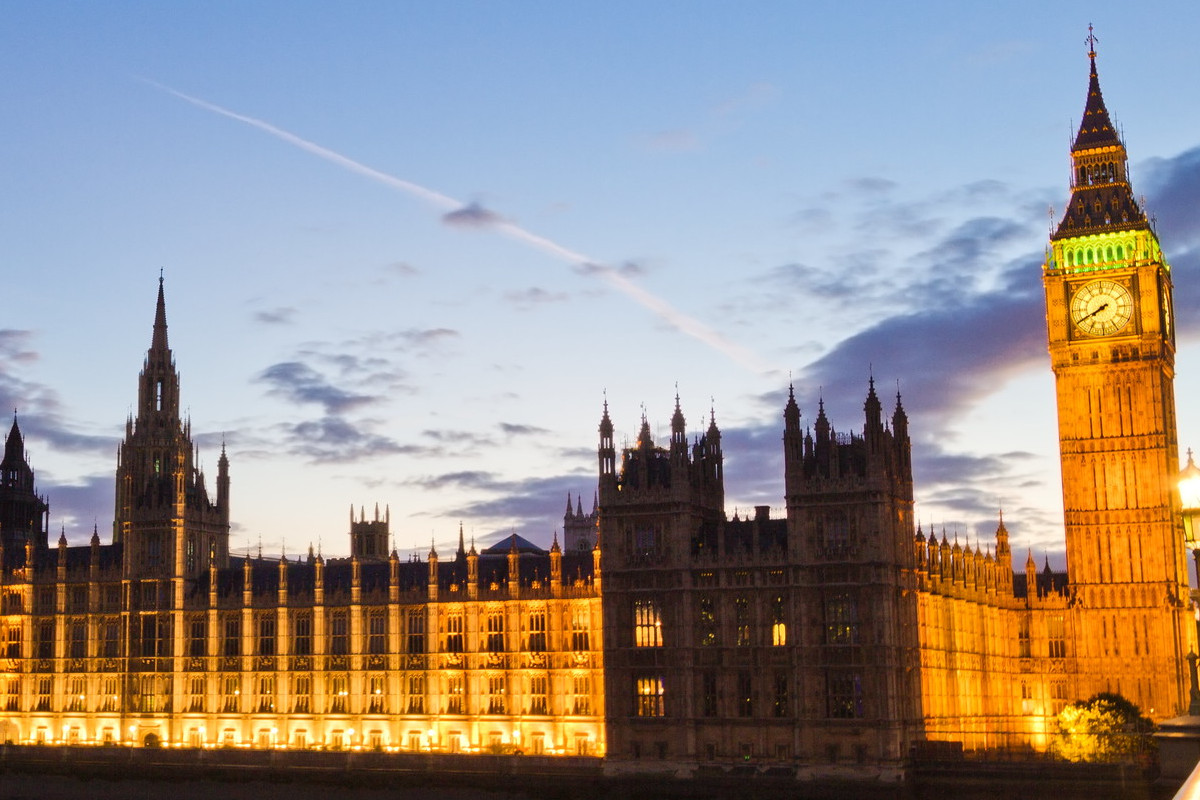
UK: Arrival without an electronic travel authorization could mean up to four years in prison
The government has ramped up its attack on people arriving in the country without first seeking permission, with the addition of new powers that would make it possible for courts to hand down prison sentences of up to four years.
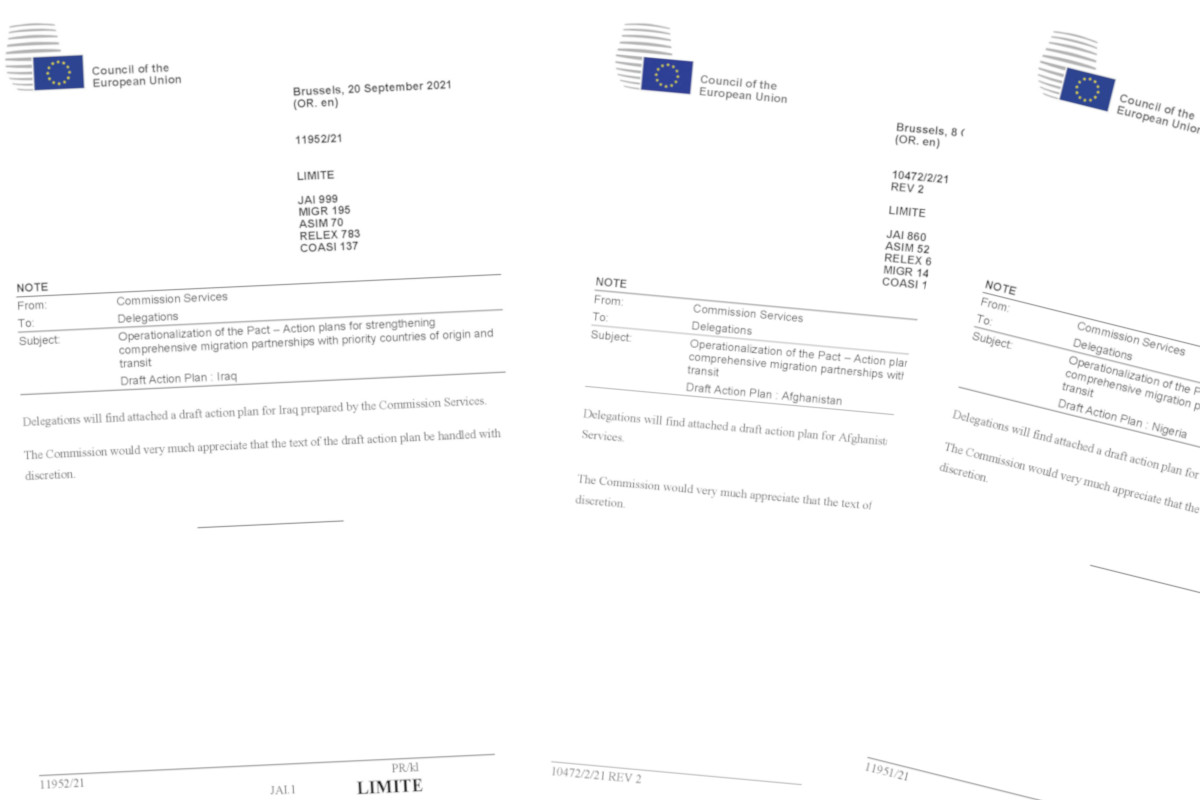
EU: Tracking the Pact: Migration action plans on Afghanistan, Bosnia and Herzegovina, Iraq and Nigeria
Eight draft action plans for cooperation with non-EU states on migration and border control were approved by the European Council in October. Documents dealing with Afghanistan, Bosnia and Herzegovina, Iraq and Nigeria, published here, show a chosen path of intensified externalisation of EU border management, and very little commitment to legal migration pathways.
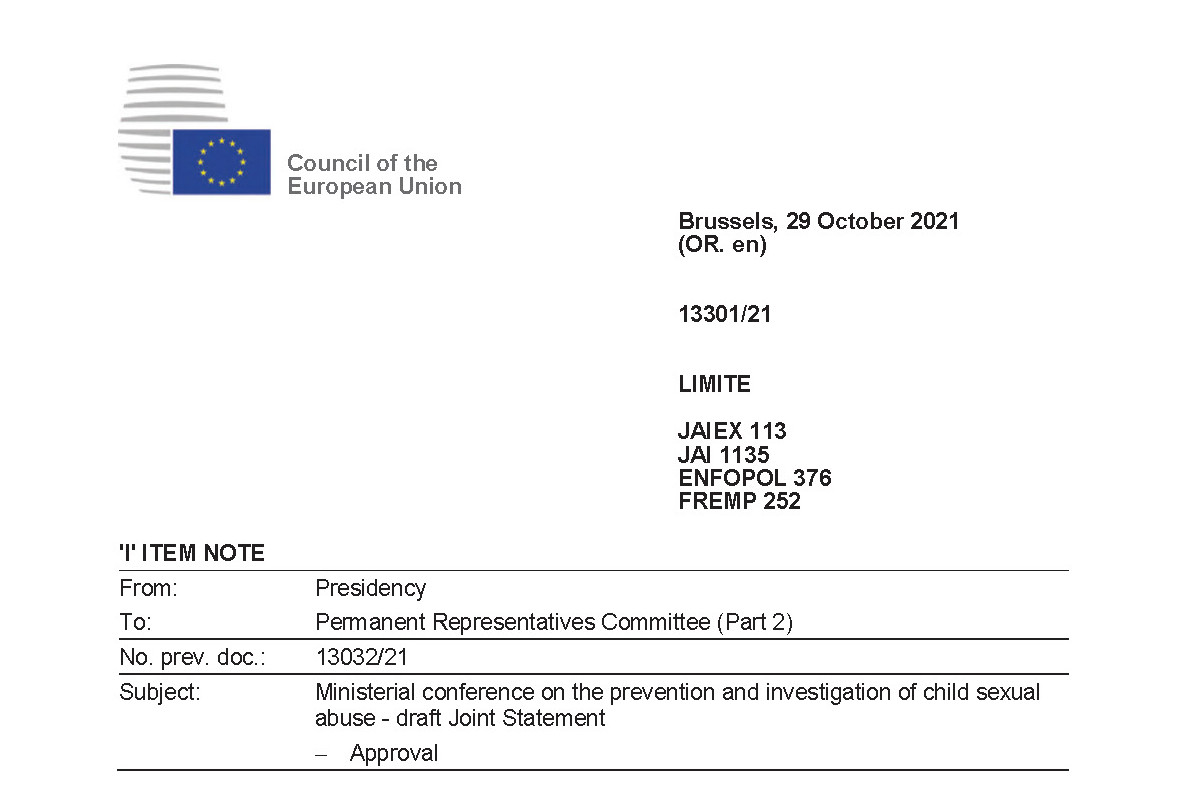
Policing the internet: interior ministers to seek "solutions regarding data retention, encryption, e-evidence and the darknet"
A high-level conference organised by the Slovenian Presidency of the Council of the EU will commit participating states to finding "appropriate solutions regarding data retention, encryption, e-evidence and the darknet," in the name of combating child sexual abuse.
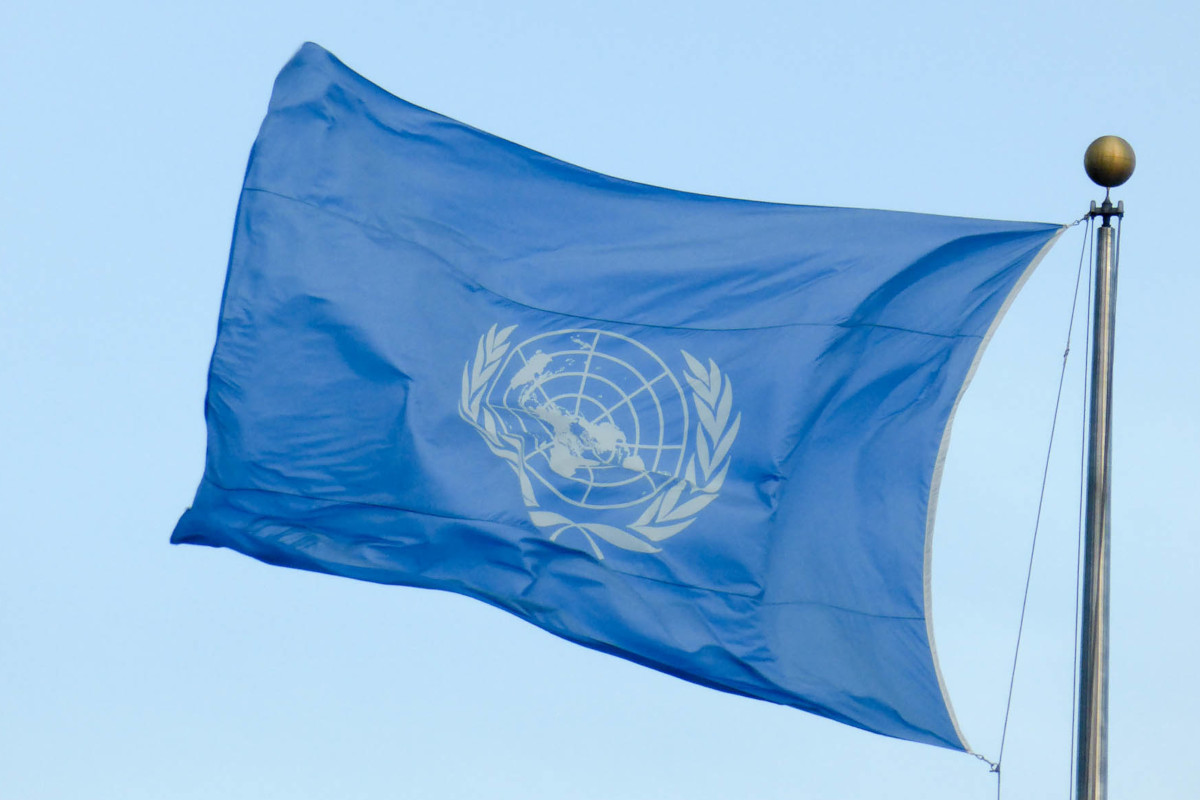
UN: Human trafficking victims must be protected even in fight against terrorism
A new report by the UN Special Rapporteur on trafficking in persons examines "the intersections between trafficking by proscribed groups and terrorism, and in particular the continuing failures in terms of identification of and assistance to the victims of trafficking and in terms of the protection of their human rights."
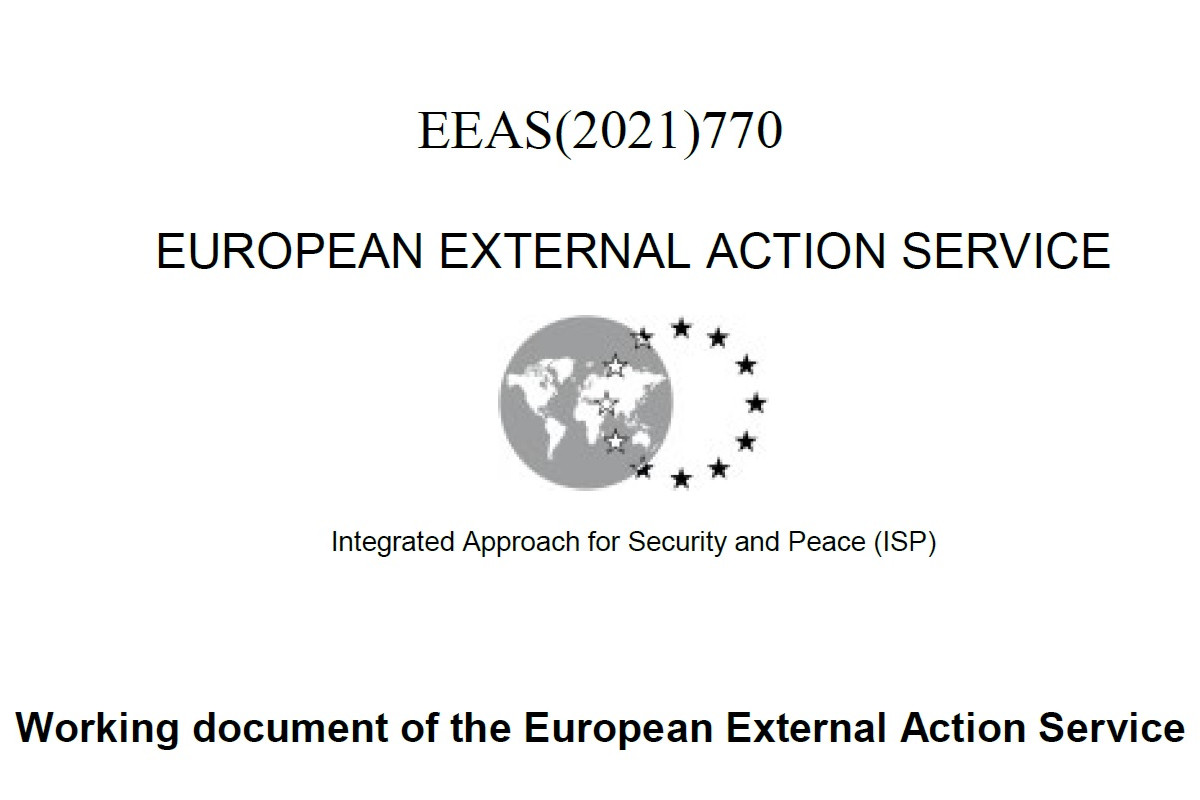
EU: Integrated Approach on Climate Change and Security, Military Vision and Strategy on Cyberspace
Two recent documents produced by the European External Action Service, the EU's foreign policy arm.
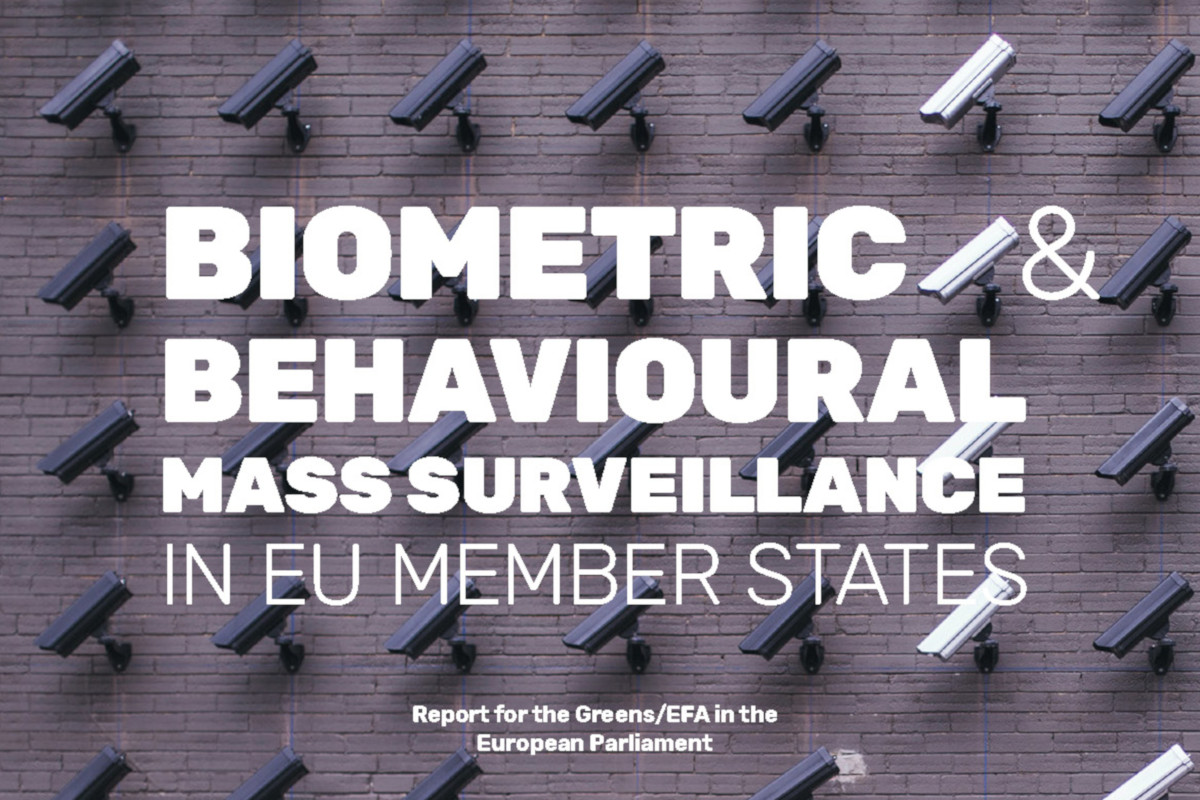
New study reveals alarming expansion of biometric mass surveillance in Europe
Press release published by the Greens/EFA group in the European Parliament, 25 October 2021.

UK: Plans to ease joint data processing by intelligence agencies, police and “national security partners”
The UK government is consulting on wide-ranging changes to data protection law that include a proposal to facilitate “joint operational activity between law enforcement and national security partners.”

EU: Joint Europol-Frontex report on "digitalisation of migrant smuggling"
Europol and Frontex have produced a joint report on the "digitalisation of migrant smuggling", intended to provide state officials with in the EU and Western Balkans "with a comprehensive intelligence picture on the use of digital tools and services' [sic] in migrant smuggling and related document fraud, in order to raise awareness, consolidate existing knowledge and enforce opportunities to take appropriate measures to tackle emerging threats."
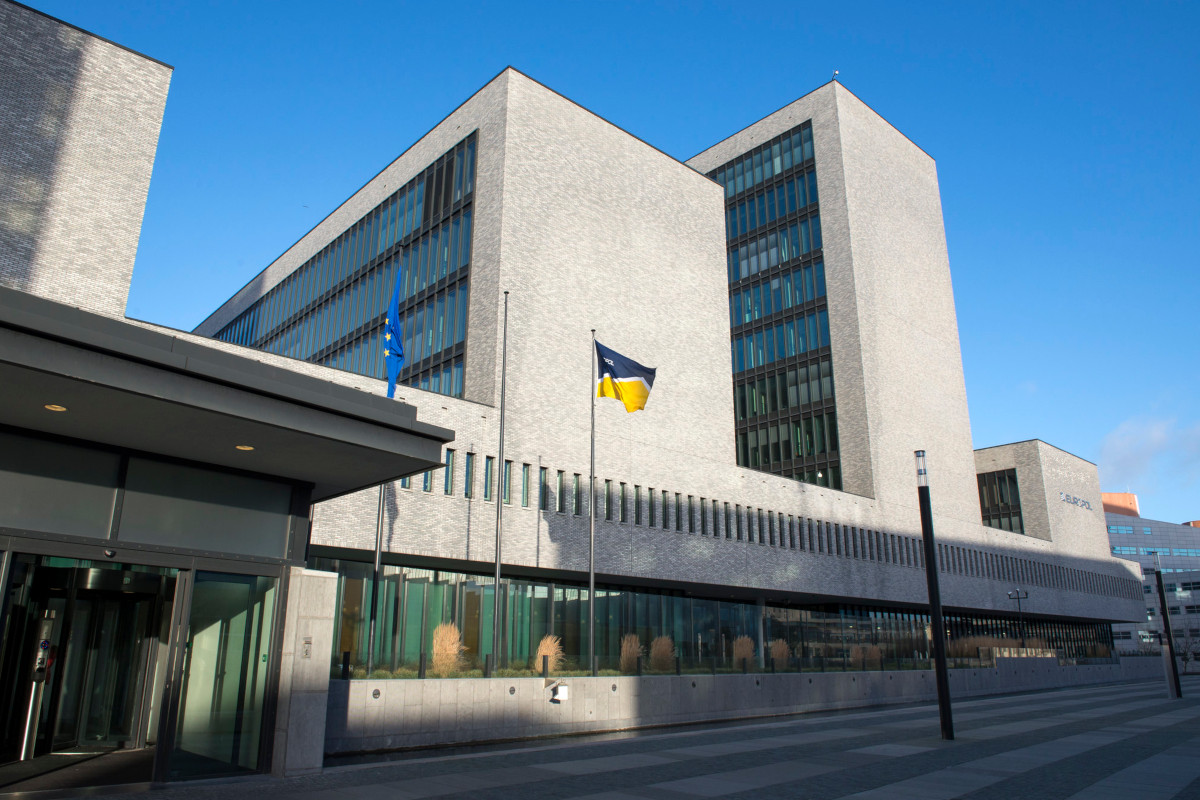
EU: Europol data repositories "beyond iBase and Palantir"
In response to a letter from an MEP, EU policing agency Europol has disclosed some of the "data repositories" that it operates, "beyond iBase and Palantir".

FRONTEX & EASO complicity in the violations of refugee law by the Cypriot government
Press release published by KISA on 18 October 2021.

Italy: Criminalisation of migrant boat drivers examined in new report
A new report, 'From Sea to Prison: The Criminalization of Boat Drivers in Italy', looks at how the Italian state has arrested and imprisoned hundreds of people who have piloted boats towards the shores of the country, "utilizing criminal law, undercover police operations and emergency anti-Mafia powers to re-enforce Europe’s border regime."
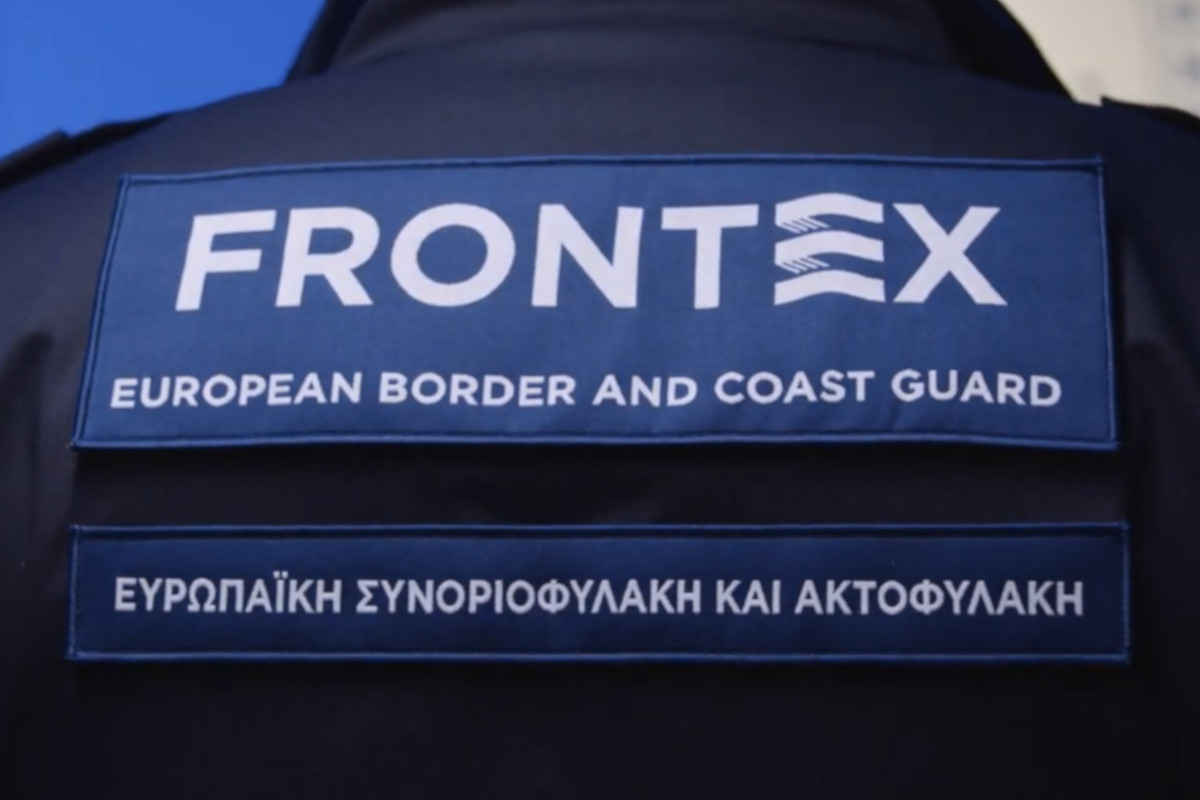
EU: Member states back bigger Frontex role in "voluntary return and reintegration"
In July, the Slovenian Presidency of the Council sought member states' views on the role of Frontex in implementing the EU's Strategy on Voluntary Return and Reintegration. The responses, published here, show that national authorities are keen to boost it.
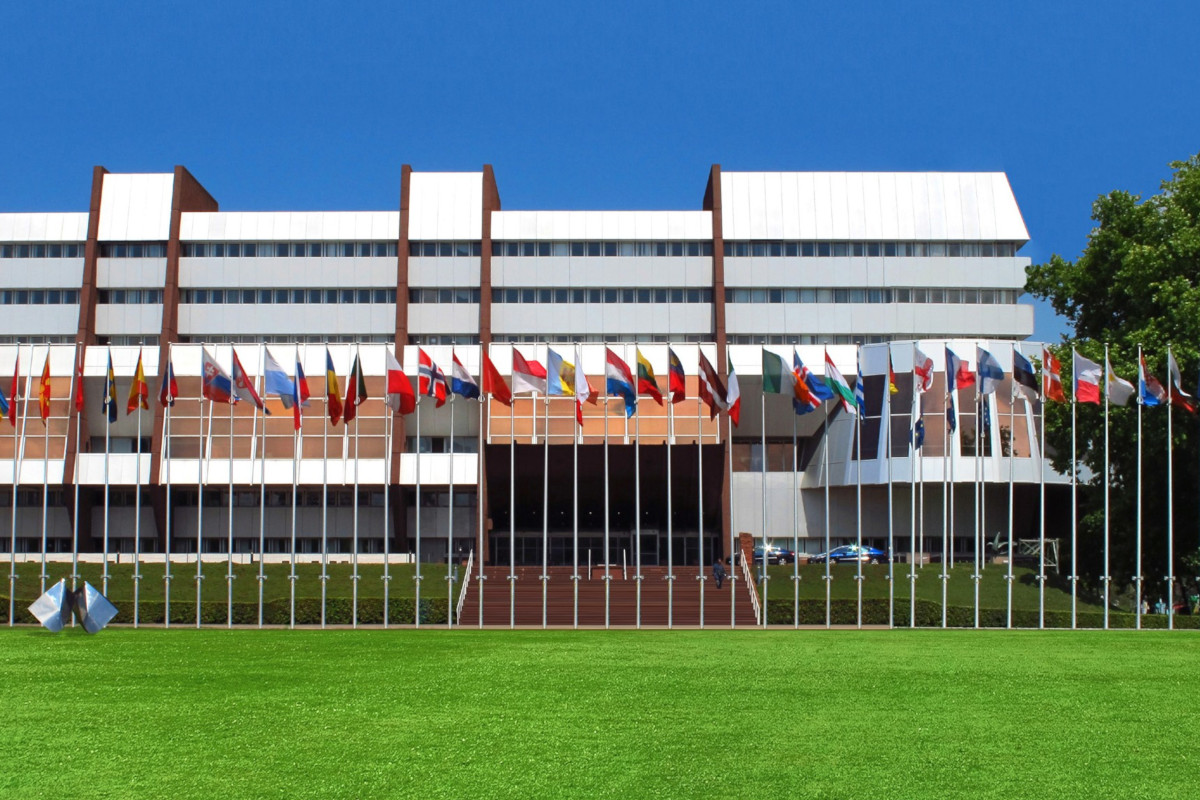
Pushbacks: Legalising the illegal cannot be permitted, says Council of Europe human rights chief
In a strongly-worded statement, the Council of Europe's Commissioner for Human Rights has called on member states to halt ongoing pushbacks and to cease any attempt to legalise the practice. The statement comes in response to a call from 12 EU member states that says all external borders "must be protected with maximum level of security" and essentially calls for the legalisation of pushbacks, EU funding for border walls, and measures to respond to "a hybrid attack characterised by an artificially created large scale inflow of irregular migrants".
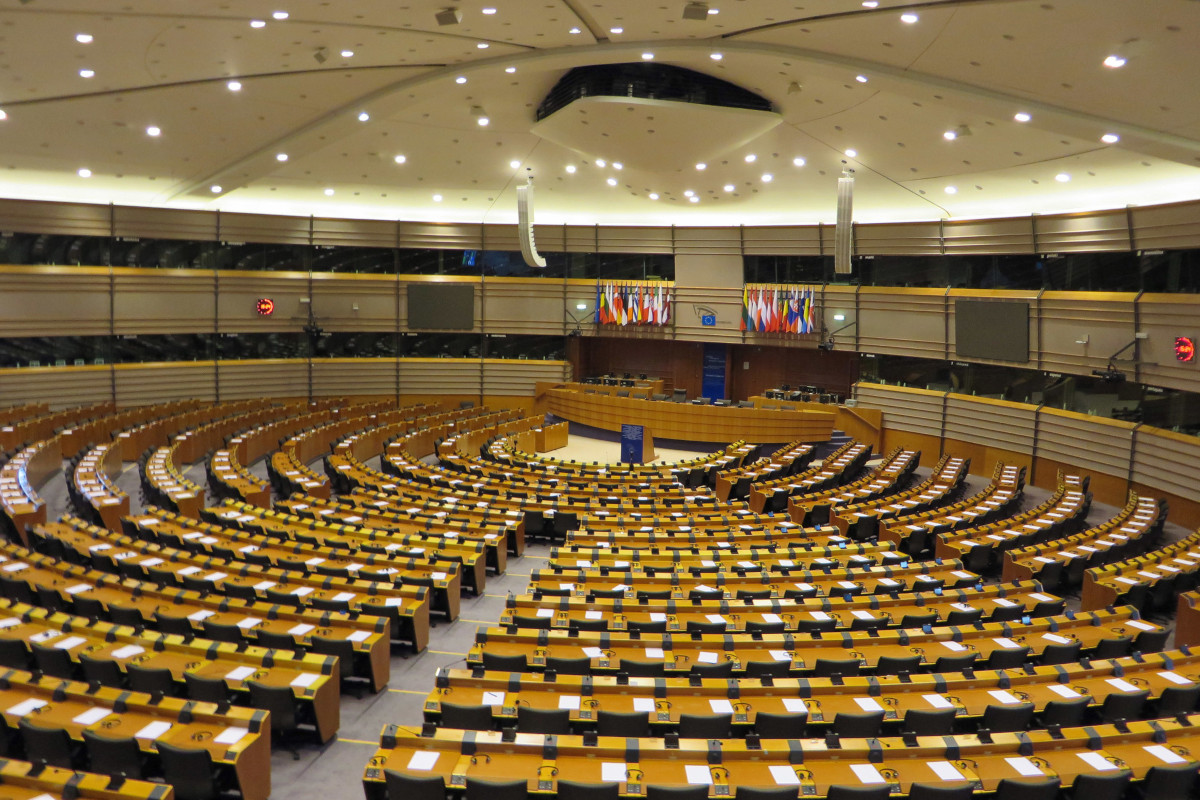
European Parliament ignores fundamental rights concerns in vote on new powers for Europol
A large majority of MEPs have voted to approve a mandate for negotiations with the Council of the EU on expanding the powers of Europol, the EU policing agency, despite serious fundamental rights concerns with the proposals.
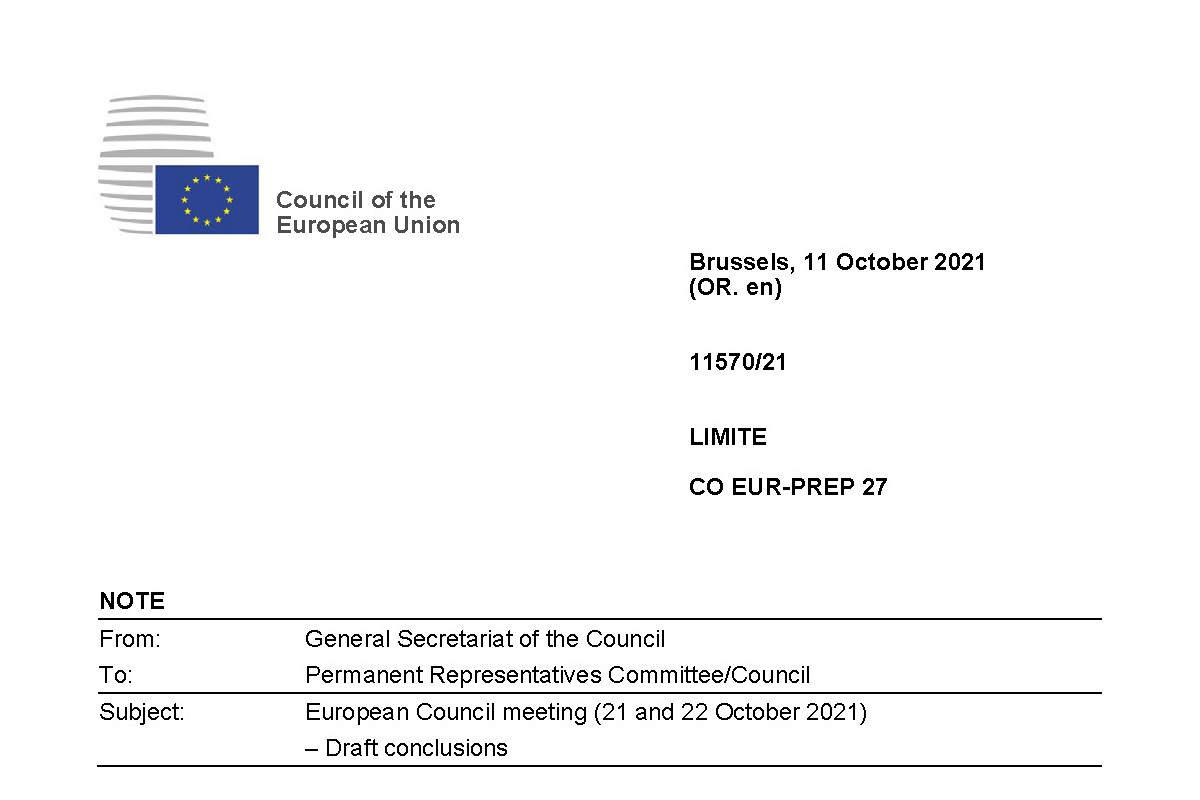
EU: European Council, 21 October: draft conclusions
Covering COVID-19, "digital", energy prices, migration, trade and external relations.
Spotted an error? If you've spotted a problem with this page, just click once to let us know.